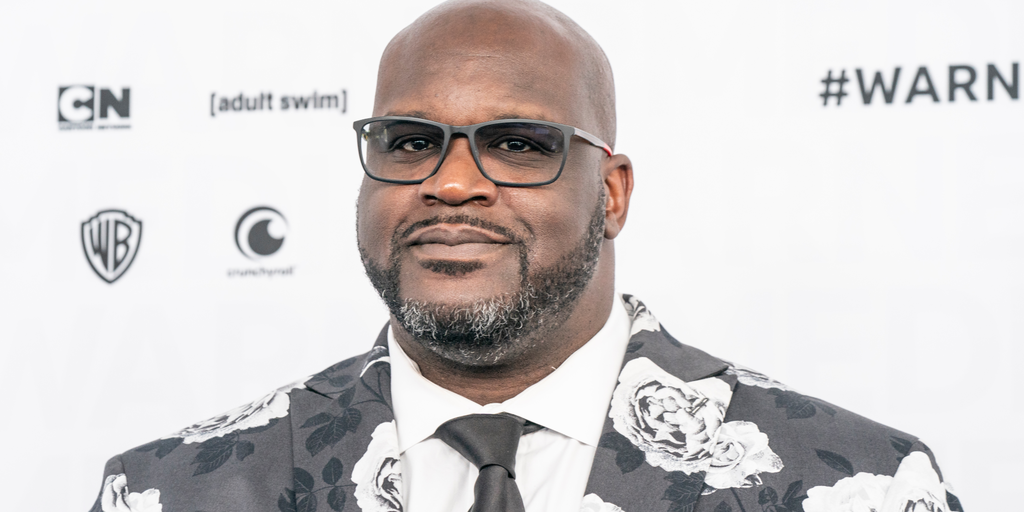Shaquille O'Neal Can't Dodge Solana NFT Lawsuit, Court Says - Decrypt
08/19/2024 19:38
Basketball legend Shaquille O'Neal's NFT project Astrals is subject to a class action lawsuit, which was only partially dismissed on Friday.
A class action lawsuit against Shaquille O’Neal was partially dismissed Friday, while a U.S. court found that the legal battle over his Solana NFT project Astrals could proceed on some allegations that the basketball legend offered and sold investors unregistered securities.
O’Neal’s Solana-based NFT project Astrals featured 10,000 “metaverse-ready avatars,” which were tied to a DAO and governance token dubbed GLXY. The lawsuit, brought last year, focuses on O’Neal’s role and the extent to which he could be held liable as a promoter.
“This case is going full force ahead,” Adam Moskowitz, a general partner at The Moskowitz Law Firm told Decrypt, describing the judge’s decision as a “great fortuitous moment.”
The lawsuit’s plaintiffs, represented by The Moskowitz Law Firm, have alleged that Astrals tanked in value after O’Neal “fled the project” following FTX’s collapse in 2022. A Discord message, in which O’Neal wrote “I’M NOT FUCKING LEAVING” shortly after the exchange’s implosion, is presented as a statement capturing O’Neal’s failed promises and his once-pivotal role.
Within the context of securities laws, U.S. District Judge Federico Moreno found that O’Neal could plausibly be considered a “seller” under Section 12 of the Securities Act. One element that the judge cited is the role of O’Neal’s son as Astrals’ head of “investor relations” and allegations that the project’s success was “entirely linked to defendant O'Neal's celebrity status.”
Moreover, Moreno determined that O'Neal's promotion of the Astrals project didn’t require “personalized” or “individualized” communications with prospective investors. Rather, the judge found that the existence of a financial motive made O’Neal’s broad communications, often made through Twitter, relevant to the lawsuit.
The decision could have an impact on other crypto-related class actions lawsuits where billions of dollars in damages are on the line, Moskowitz said. Those include cases related to FTX and Voyager, which are being pursued by The Moskowitz Law Firm and David Bois.
“It’s a very expansive ruling,” Moskowitz said of Moreno’s ruling. “Promoters like the MLB, the NBA, Tom Brady—they're arguing we can't state a section 12 case because we have to show that each person heard the [promotional] statement.”
However, the court dismissed a claim that alleged O’Neal was liable for promoting and selling unregistered securities under the definition of a “control person.” In order for that claim to proceed, the case’s plaintiffs needed to allege that O’Neal had an active role in Astrals’ day-to-day operations, aside from promotions of Astrals on social media.
“The amended complaint clearly alleges that [O’Neal] founded the Astrals project, assembled a management team, and his efforts were essential,” Moreno wrote. “However, it does not hold true that the mere fact someone is a founder equates to having control.”
Prior to Friday’s court decision, O’Neal’s team had moved to strike several of the lawsuit’s references to FTX. Before the crypto exchange collapsed in November 2022, O’Neal served as one of the firm’s celebrity promoters, having been featured in a commercial.
Because O’Neal spoke on an episode of “The FTX Podcast” and Astrals’ team allegedly reassured the project’s community that O’Neal’s involvement would continue despite FTX’s fallout, Moreno denied a motion to strike all references to the bankrupt exchange.
In the class action lawsuit against FTX’s celebrity promoters, serving O’Neal proved a challenge. Previously, Moskowitz told Decrypt that he was engaged in a cat-and-mouse game with one of the NBA’s biggest personas, which was holding up the case’s progress.
Eventually, O’Neal was served outside his house, only for his lawyers to counter and say papers were instead thrown at his car. Eventually, while broadcasting an NBA game at what once was Miami’s FTX Arena, O’Neal was served in relation to both Astrals and the FTX lawsuit.
As the lawsuit presses forward with O’Neal’s motion mostly denied, the basketball legend is expected to respond to the lawsuit’s allegations by September 12.
O’Neal did not immediately respond to a request for comment from Decrypt.
Edited by Andrew Hayward
Daily Debrief Newsletter
Start every day with the top news stories right now, plus original features, a podcast, videos and more.